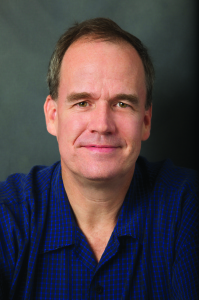Pulitzer winner Don Van Natta Jr. offers 14 Tweets to help aspiring journalists

For all the pitfalls and silly spats that Twitter offers, it’s Wednesday’s series of Tweets (see Storify below for complete roll) from ESPN’s Don Van Natta Jr. that reveal just how valuable the social media tool can be.

“Twitter is an incredible medium,” said Van Natta, the Pulitzer Prize-winning journalist who joined ESPN a year ago. “All aspiring journalists and current journalists should join (several of my writer friends are still resisting it). On Twitter, you get instantaneous feedback when you say something smart and when you say something stupid. The Twitter community is tough, snarky and often unforgiving but it also recognizes and celebrates quality.”
That celebration of quality was in full effect after Van Natta responded to British journalism student Maya Hattenstone’s (@mayahattenstone) request of advice for aspiring journalists. Van Natta put his response together during an Atlanta layover and decided Twitter would be an effective means of sharing his thoughts — he receives similar requests fairly regularly.
“I thought Twitter would be a good way to broadcast the tips and then they’d always be in one place,” said Van Natta (@DVNjr), who has nearly 15,000 followers. “As the cabin doors were closing for my flight to Nashville and the flight attendants were telling everyone to power down, I quickly sent out the tweets.”
Van Natta shared some of the results of those 14 Tweets with Front Row:
What’s the reaction been like?
Pretty overwhelming — hundreds of retweets of the tips and many tweets and notes of thanks from aspiring journalists and veteran reporters. I have also been touched by the reaction of journalism professors and colleagues at ESPN.
Is there one or two of the nuggets that you deem MOST important?
The most important lesson for any young journalist is to understand this is an incredibly competitive business. You need to distinguish yourself and that takes hard work, smart, well-informed questions (“read everything”) and the ability to listen and observe closely, usually at the same time. Easier said than done; it all takes practice (“write every day”). People have reacted most to the tip, “Have fun because you won’t get rich.” Besides testing your ability to stay on a tight budget, a journalism career is also a test of will. Stick with it and you will have the best time ever.
Who gave you this kind of advice when you were setting out on your career?
I had a lot of practical advice coming up from professors, writers and editors. A grizzled journalism professor at Boston University named Douglas S. Crocket liked to say, “Just do it.” Experience is everything. The best world and journo advice came from a legendary Miami Herald editor (and two-time Pulitzer winner) named Gene Miller, who died in 2005. When writing, Gene would always admonish me to “simplify.” As I write now, I can still hear his voice: “Simplify, simplify, simplify.” Clean, simple writing is hard but Gene made it look easy. He also had more fun in a newsroom than anyone I’ve known.







